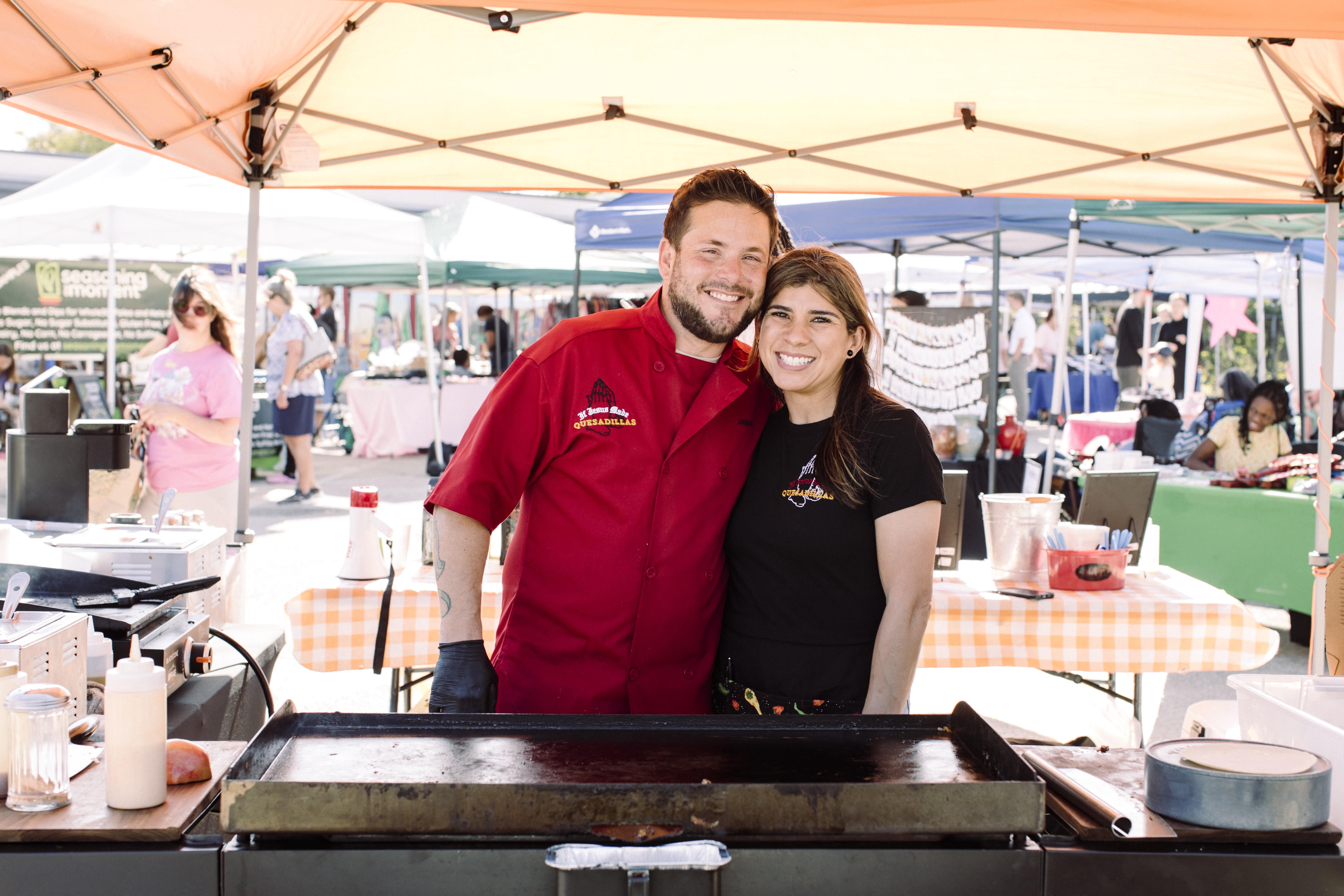
Kelsey Foster

Audio By Carbonatix
Who doesn’t love a food truck? Convenient. Portable. Smells great. But our favorite quality of the food truck is room for creativity, which makes up for its lack of physical room to move around in. Truth is, a food truck can be anything and can serve anyone.
But in Texas, food trucks have long been stifled by rules that require individual permits and inspections for each city and county they operate in. Getting both costs precious money and time that food truck owners, or anyone for that matter, simply don’t have.
“The rules and regulations are very complex,” says Sarah Lewis, event organizer at Food Truck League Dallas. “I haven’t seen anything like it for any other profession I can think of. If you’re an electrician or a plumber, you get one license and you go anywhere. But for a food truck, it literally varies by every single city in every single county.”
Not only the license, food trucks have even been required to get new health and fire inspections for each new place. It’s frustrating for the business owners, but also for organizers like the Food Truck League, who then become at the mercy of each truck’s individual set of permits when putting together an event.
“It’s a really common thread for clients and cities to struggle to find good food trucks for events,” Lewis says. “It’s very complicated and it doesn’t make any sense. Why would the fire permit need to be different? Why would the health standard be different? It’s kind of silly and it takes so much time for the trucks to go through all that paperwork.”
One Statewide Permit
But at long last, Texas House Bill 2844 passed in June, reconfigured the regulation of food service establishments. In particular, it will transition the food truck policy to only require one statewide permit for food trucks, enabling them to move around and sell anywhere beginning next summer.
CJ Hunter operates So Forkin’ Good BBQ full-time and has been in business for six years under the old policy.
“The first two years,” Hunter says. “I was like, ‘I guess I gotta have these permits if I’m going to be in these different counties and cities.’ I got every one of them, and it cost. At the end of the year, it was a waste, because I wasn’t really doing a lot of activities in all these other counties.”
The money was one thing; Hunter routinely spent several thousand dollars each year on permits and inspections. But it was also the loss of his time, having to get all his ducks in a row just to move a few miles over for an event.
“Just everything, your commissary, your insurance, your tags, your business permit,” he says. “Everything for each and every county. You’ve got to keep up, not only with all that, but you have to renew it every year.”
As for the new legislation, Hunter is excited, but with a caveat.
“It’s big time,” he says of the bill. “The whole state of Texas, that is phenomenal. I’m scared how much it’s gonna cost for this if there’s one annual permit, but at the end of the day, I think it’ll all pan out.”
While So Forkin’ has been serving North Texas for six years, Monica Juneau and Jamie Coffey’s food truck has only been in business for a couple months. They’re the co-owners of If Jesus Made Quesadillas, and they were just beginning to navigate the gauntlet of red tape before the bill passed. When the two were getting ready to launch the business, they were forced to sit idle for months while waiting for a Dallas County permit.
“We had an approval from them pending our permit,” Juneau says. “We sat for seven weeks of work that we missed waiting to be permitted from Dallas County. Then once we got in there, it’s great, but now we can only work in Dallas. We live in Lancaster, on the border of Dallas and Ellis County, but we can’t work in Ellis.”
The Future is Rolling In Fast
Under the new rules, some food truck owners are expecting a sudden influx of new businesses into the scene. Some could be apprehensive about what that could mean for the market as a whole, but Coffey is optimistic.
“With the permits being obtainable and making sense,” he says. “It’s going to do away with a lot of people trying to operate off the grid. A lot of people are saying you’re going to have a landslide of all these food trucks and it’s going to be unsanitary and all this. But I think the opposite, I think it’ll be a lot more sanitary because it’ll free up people to actually spend their money and energy on what they need to spend their money and energy on.”
“I don’t think it’s an exaggeration whatsoever to say it’s going to change a lot of people’s lives,” Sarah Lewis says.
Lewis echoes Coffey’s sentiments.
“They’re going to save thousands of dollars in permits,” Lewis says. “Not only will they save the money and the time, they can now use it to grow their business, they can actually fix their truck, do truck repairs, all kinds of stuff.”
The new statewide law will go into effect next summer. In the meantime, food trucks still need your support. The Food Truck League holds weekly events in Irving on Tuesdays and in Cedar Hill on Thursdays. So Forkin’, If Jesus Made Quesadillas and all of your favorite local food trucks always have packed calendars that can be found on social media.
“I don’t think it’s an exaggeration whatsoever to say it’s going to change a lot of people’s lives,” Lewis says. “I’m so thankful for all the legislators who supported them.”